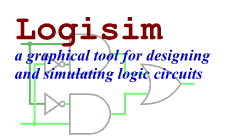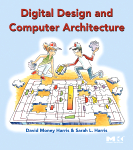
Fundamentals of Computer Systems
Summer 2015
 |
||
| CSEE W3827 Fundamentals of Computer Systems Summer 2015 |
||
Class meets Tuesdays and Thursdays, 5:30 - 8:40 PM in 825 Mudd.
| Name | Office hours | Location | |
|---|---|---|---|
| Prof. Stephen A. Edwards | sedwards@cs.columbia.edu | TBA | 462 CSB |
| David Arthur | da2647@columbia.edu | 3-5 Wednesday | TA Room (Mudd 1st floor) |
| Emilia Pakuilski | enp2111@columbia.edu | 2-4 Sunday |
This course examines how the 1s and 0s that form the foundation of digital computing are organized, structured, and manipulated to produce full-fledged computer systems. In bridging this gap, the course will cover many subjects beginning with binary logic, combinatorial and sequential circuit design, memory structures, instruction set architectures, and, ultimately, basic processor design.
An introductory programming course, such as COMS 1004 or 1007. You need to understand the basics of imperative, sequential programming to understand the assembly language programming we will discuss.
 |
For some of the homework assignments, you will need to use Logisim, which runs on many platforms. Download it here. |
David Harris and Sarah Harris. |
 |
| 40% Homeworks |
| 30% Midterm |
| 30% Final |
You may discuss homework problems with your classmates, but you must write up your solution independently and understand it. Students turning in copied homeworks will be referred to the dean. See the Columbia CS department academic policies for more details.